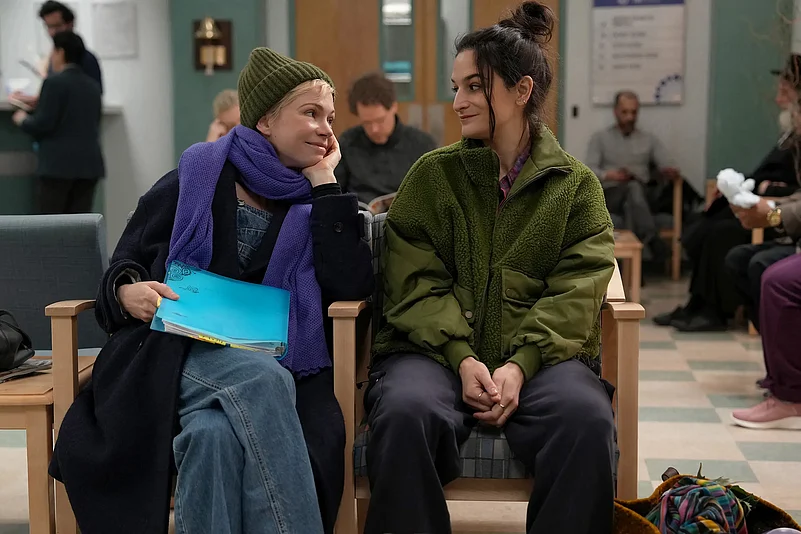Two years since she was first diagnosed with breast cancer, Molly (Michelle Williams) is walking towards recovery.
The disease seems to have abated until it all surges back. The cancer has metastasized, spread to her hips and rooted itself all over her body in Stage 4. However, there’s also a sudden spurt in her as a sexual being. She grudges that her husband Steve (Jay Duplass) is disaffected with her erotic yearning and pulls away at sex. “I want to feel things,” Molly asserts, while he keeps suggesting she must be confused about what she really wants.
Steve is reliable with all the practical, pragmatic needs but tuned out of her desires, the base of her feelings. What does she want in the moment? He can’t fathom her spiked-up libido, passing it off as a phase and refusing to sincerely engage with it. He’s befuddled how she, in her forties and with terminal illness staring at her, can be invested instead in thoughts of sex. Her marriage may have been functional on a daily basis but has lost all spark. It’s turned dry, passionless; Molly is driven to shake up things, move out of it since Steve is so disinterested. With her body viewed as an anomaly, she rebels. At couple therapy, all she has on her mind is a hook-up for her twenties. She tries gathering herself, even as her mind is racing with those excited stimulations.

In Dying for Sex, writers/creators/showrunners Kim Rosenstock and Liz Meriwether nail a tricky tonal balance. You grieve for Molly as much as delight in her giddiness, joy of leaning into new experiences and sensations. Even as her life is winding down, an unexplored world is opening up. There’s so much she wants to know and discover for herself, pleasures she never knew could be viable, attainable. It’s like she’s shedding a thick shell limned with hesitation, taboo and, crucially, the freedom to ask for more. She embarks on a string of hook-ups in fancy hotels and departmental stores. Every beat in these encounters—from tentativeness to absolute thrill, awkwardness to ecstatic affirmation—is marvelously etched in Williams’ radiant, wrenching and lucidly open performance.
The cancer’s return compels Molly to take long-deferred plunges without doubting her footing, rethinking what’s acceptable. Her marriage may have the safety nets but has become too unadventurous—no longer a match for Molly’s awakened endless sexual hunger. Her taste for uncharted experiences can’t be met with Steve, who says he can indulge it only by way of pity. Molly breaks up, entrusting her best friend Nikki (an effervescent, scene-stealing Jenny Slate) with caregiving duties. Nikki may not seem like the best fit initially. She’s terribly disorganized, frequently forgetful, misplacing everything from her phone to essential medical records. But Nikki wants to be present for Molly, and it’s amazing to see how people can adapt.


































0 Comments